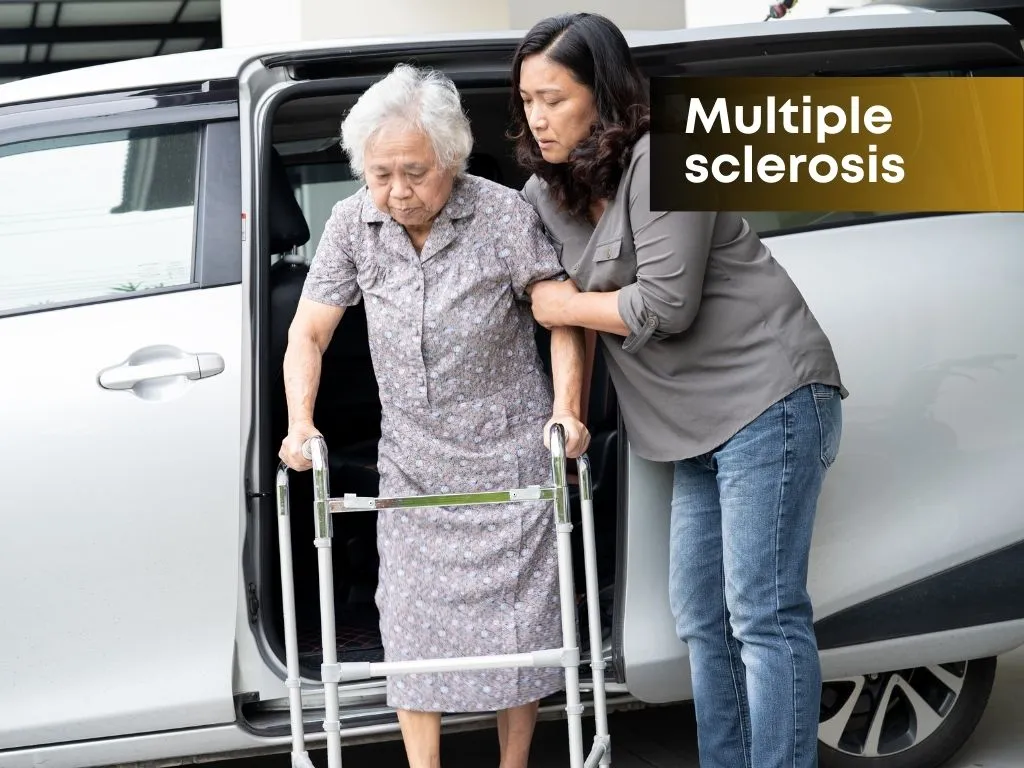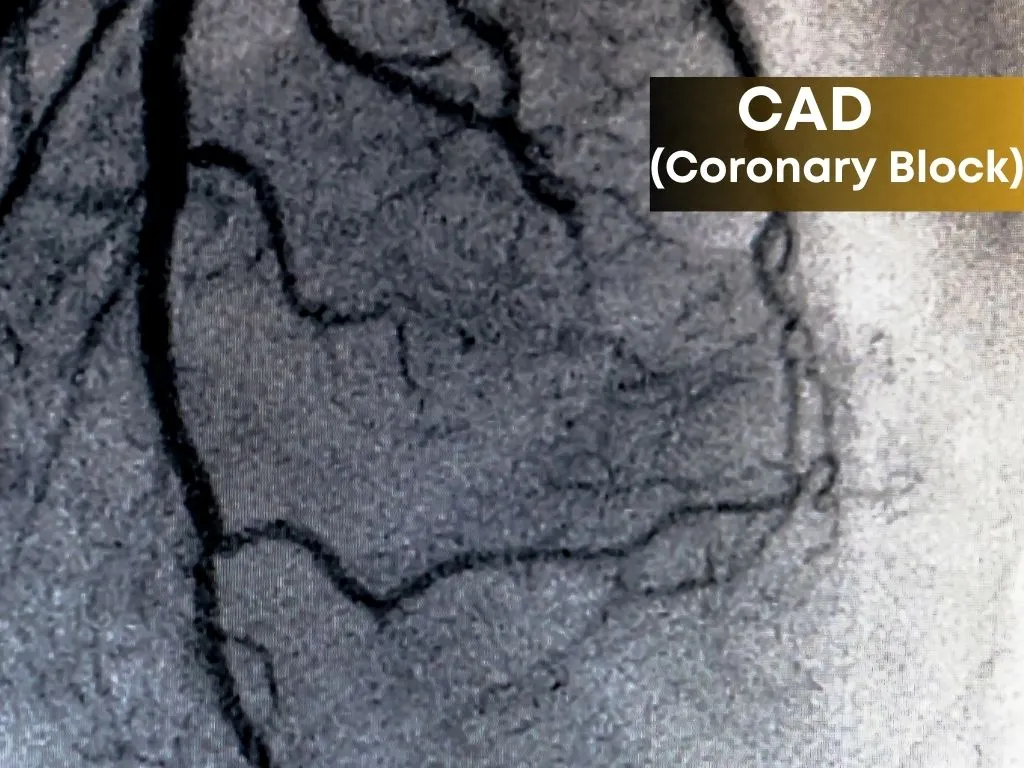Overview
Multiple sclerosis (MS) is a chronic neurological condition that affects the central nervous system (CNS), which includes the brain and spinal cord. It is considered an autoimmune disease, where the body's immune system mistakenly attacks its own tissues, in this case, the protective covering of nerve fibers called myelin.
Causes
Autoimmune Response: MS is considered an autoimmune disease, which means that the body's immune system mistakenly attacks its own tissues. In the case of MS, the immune system attacks the myelin sheath, the protective covering of nerve fibers in the central nervous system (CNS). This leads to inflammation, damage to the myelin, and disruption of nerve signaling.Genetic Factors: Although MS is not directly inherited, there is evidence to suggest that genetics play a role in predisposing individuals to the disease. Certain genetic variations have been associated with an increased risk of developing MS, but they are not the sole determinant of the disease. Family history of MS can also increase the likelihood of developing the condition.Environmental Triggers: Certain environmental factors may trigger the development of MS in individuals who are genetically susceptible. These triggers could include viral infections (such as Epstein-Barr virus), exposure to certain toxins, low levels of vitamin D, smoking, and other factors that can influence the immune system.Immune System Dysfunction: Dysfunction of the immune system is a central feature of MS. Normally, the immune system helps defend the body against infections and other threats. In MS, however, the immune system mistakenly targets and attacks the myelin sheath, leading to inflammation and damage to the CNS.Other Factors: Other potential factors that may contribute to the development of MS include hormonal changes, such as those that occur during puberty or pregnancy, and certain autoimmune conditions or infections that affect the central nervous system.
Symptoms
Fatigue: Fatigue is one of the most common symptoms of MS, affecting up to 80% of individuals with the condition. It can be overwhelming and interfere with daily activities.Numbness or Tingling: Many people with MS experience numbness or tingling in various parts of the body, often in the limbs or face. This sensation may come and go or persist over time.Muscle Weakness: Weakness in the muscles, particularly in the legs, can make it difficult to walk or perform everyday tasks.Spasticity: Spasticity refers to stiffness and involuntary muscle spasms, which can be painful and interfere with movement.Balance and Coordination Problems: MS can affect balance and coordination, leading to difficulties with walking, standing, or maintaining posture.Vision Problems: MS can cause vision problems, including blurred vision, double vision (diplopia), optic neuritis (inflammation of the optic nerve), and loss of vision in one eye.Dizziness and Vertigo: Some people with MS experience dizziness or vertigo, a sensation of spinning or whirling.Cognitive Changes: MS can affect cognitive function, leading to problems with memory, attention, concentration, and information processing.Emotional Changes: MS can also impact mood and emotional well-being, leading to symptoms such as depression, anxiety, irritability, and mood swings.Bladder and Bowel Dysfunction: MS can affect bladder and bowel function, leading to symptoms such as urinary urgency, frequency, hesitancy, incontinence, or constipation.Sexual Dysfunction: MS can affect sexual function in both men and women, leading to symptoms such as erectile dysfunction, decreased libido, and difficulty achieving orgasm.
Treatment: Modern Medicine
Disease-Modifying Therapies (DMTs): DMTs are a class of medications used to reduce the frequency and severity of relapses, slow down the progression of disability, and decrease the number of lesions in the central nervous system. Examples of DMTs include interferon beta medications (such as Avonex, Betaseron, and Rebif), glatiramer acetate (Copaxone), fingolimod (Gilenya), dimethyl fumarate (Tecfidera), and others. These medications are typically administered as injections, oral tablets, or infusions.Corticosteroids: Corticosteroids, such as prednisone or methylprednisolone, may be used to reduce inflammation during MS relapses. They are often given as short-term treatments to help speed up recovery from relapses and alleviate symptoms.Symptomatic Treatments: Symptomatic treatments are used to manage specific symptoms of MS, such as fatigue, muscle spasticity, pain, bladder and bowel dysfunction, depression, and cognitive impairment. These treatments may include medications, physical therapy, occupational therapy, speech therapy, and other supportive interventions.
Treatment: Traditional Medicine
Heat Therapy: Some people with MS find relief from symptoms such as muscle stiffness and fatigue by using heat therapy. This can include taking warm baths or showers, using heating pads or warm compresses on affected areas, or using heat packs or heated blankets.Cold Therapy: Cold therapy, such as applying cold packs or ice packs to areas of inflammation or muscle spasticity, may help reduce pain and swelling in some individuals with MS.Herbal Supplements: Some herbal supplements, such as turmeric, ginger, ginkgo biloba, and St. John's wort, are believed to have anti-inflammatory or mood-stabilizing properties that may benefit people with MS. However, it's essential to use caution with herbal supplements and consult with a healthcare professional before taking them, as they can interact with medications and have side effects.Acupuncture: Acupuncture, a traditional Chinese therapy that involves inserting thin needles into specific points on the body, may help alleviate pain, fatigue, and other symptoms in some people with MS. It's essential to seek treatment from a qualified and licensed acupuncturist.Massage Therapy: Massage therapy can help reduce muscle tension, improve circulation, and promote relaxation in people with MS. It's essential to work with a massage therapist who has experience working with individuals with MS and understands their unique needs and limitations.
Caution
Consult with Healthcare Professionals: Always consult with your healthcare team before trying any new remedy or treatment, including traditional or home remedies. They can provide guidance on the safety and appropriateness of different approaches based on your individual health status and medical history.Potential Interactions: Some traditional remedies and herbal supplements may interact with medications used to treat MS or other health conditions, leading to adverse effects or reduced effectiveness. It's essential to inform your healthcare provider about all medications, supplements, and remedies you are using to avoid potential interactions.Safety Concerns: Not all traditional or home remedies are safe or suitable for everyone, especially those with underlying health conditions or allergies. It's essential to research and understand the potential risks and benefits of any remedy before trying it, and to use caution when using unfamiliar or untested treatments.Monitor for Side Effects: Keep track of any changes or side effects you experience while using traditional or home remedies, and report them to your healthcare provider. Discontinue use if you experience any adverse effects, and seek medical attention if necessary.Comprehensive Approach: While traditional and home remedies may offer symptom relief or support overall well-being, they should not replace evidence-based medical treatments for MS. It's important to approach MS management with a comprehensive plan that includes medical treatments, lifestyle modifications, and supportive therapies.
Prevention
Maintain a Healthy Lifestyle: Eating a balanced diet, getting regular exercise, managing stress, and avoiding smoking and excessive alcohol consumption may help support overall health and reduce the risk of developing MS.Get Adequate Vitamin D: Some studies suggest that low levels of vitamin D may be associated with an increased risk of developing MS. Ensuring adequate intake of vitamin D through sunlight exposure, dietary sources (such as fatty fish, fortified foods, and supplements), and maintaining optimal vitamin D levels may help reduce the risk of MS.Avoid Environmental Triggers: While the exact triggers for MS are not fully understood, some environmental factors may increase the risk of developing the condition. These factors may include exposure to certain infections, toxins, and pollutants. Taking precautions to minimize exposure to potential triggers, such as practicing good hygiene, avoiding known toxins, and living in clean environments, may help reduce the risk of MS.
 Nalamaree Team
Nalamaree Team



. (20).jpg.webp)

















.jpg.webp)
